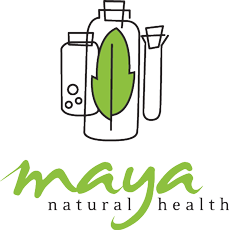Whole Plant Nutrition: There’s no substitute!
Walking down the aisles of my favourite grocery store, I am often drawn to the colourful displays of the produce section. With it’s vast array of colours, I am brought back to my childhood, where my mother instilled in me the importance of having a “colourful” plate at all meals with one or two fresh vegetables.
This “mother’s intuition” has been proven by science -fresh food is best because contains more nutrition than its dried, frozen or processed counterparts.
Why is fresh best?
When foods are fresh, they contain many nutrients that form a “complex”. Along with essential vitamins and minerals, there are many “helper” nutrients that form a cohesive structure that is considered by the body to be a protein. The helper nutrients allow key nutrients to be readily absorbed and used efficiently within our cells. To date, it is very difficult to duplicate this nutrient complex, making synthetically produced vitamin and mineral isolates inefficient and even dangerous to consume on a regular basis.
Cures
Remembering that there are not very many “cures” in this world, let’s look at an example of how whole food has effectively cured disease. In 1540, a French explorer named Jacques Cartier learned of a remedy for scurvy from the First Nations people of Lower Canada, which was prepared by extracting the needles of pine trees with hot water. Over 200 years later, Lind, an officer in the British Royal Navy, found that scurvy sufferers where relieved of their symptoms when given oranges and lemons. It took Lind 41 years to convince the British Royal Navy to use citrus fruits to prevent scurvy, leading the nickname, “limey” for British sailors.
The Science Behind the Cure
By the turn of the century, scientist knew that isolates were inferior to whole food nutrients. In 1937 Hungarian researcher Szent-Gyorgyi won the Nobel Prize for isolating ascorbic acid, commonly known as Vitamin C, from red peppers. His initial studies used a concentrated extract of red peppers to treat scurvy. When the study was repeated using isolated Vitamin C, devoid of its nutrient “helpers”, only 1/10th of test subjects were relieved of their symptoms. Dr. Casmir Funk, Nobel laureate who coined the term, “Vitamine”, said, “The synthetic product is less effective and more toxic.”
In 1945, Robert McCarrison, a research pioneer in nutrition wrote, “Vitamins will be found to exist in the foods made in nature’s laboratory, in quantities and combinations adequate for due digestion and assimilation. Each vitamin is but a member of a team, and the team itself but a part of the coordinated whole.”
Choosing Supplements
If our intuition and scientific history tells us that whole foods are better than its processed counterparts, why do we expect much less in our natural medicine supplements?
Many supplements today contain isolated vitamins and minerals, plus dried, non-organic pesticide laden herbs. Extraction, capsulation and tablet formation denatures many key constituents in medicinal plants, changing and minimizing their effectiveness.
Fresh Plant Juices
It is for this reason that I recommend that herbs be taken in the form of organic, cold-pressed, fresh plant juices, in addition to eating whole fresh foods and energy-rich spring water as a first line treatment for all medical conditions and prevention. This is clearly the preferred means by which a profound state of vibrant health can be realized using natural medicine.
Fresh plant juices can be found at your local health food store. If they are not available, ask to have them brought in for you! It is best to start with one juice at a time, to determine its beneficial effects on your unique system. I usually recommend starting with dandelion juice, which contains both the root and leaf to support healthy function of all primary elimination organs – the liver, kidney and digestive system. If you are presently taking any prescription or over-the-counter medications, artichoke juice works specifically to protect liver cells and rebuild damaged ones. Hawthorn juice can be used for conditions of the heart, such as poor circulation, varicose veins and even high blood pressure. St. John’s wort juice is also protective to the liver and relaxes and nourishes the nervous and digestive systems.
Best Practices
It is best to mix the contents of the fresh plant juice bottle with 800 mL of water in a litre container, refrigerate the combination and drink ½ cup twice a day on an empty stomach. Try this for a month – your body will thank you!
Share this page
